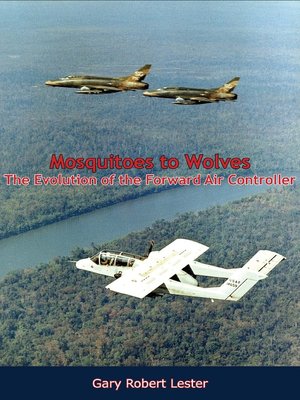
Sign up to save your library
With an OverDrive account, you can save your favorite libraries for at-a-glance information about availability. Find out more about OverDrive accounts.
Find this title in Libby, the library reading app by OverDrive.



Search for a digital library with this title
Title found at these libraries:
| Library Name | Distance |
|---|---|
| Loading... |
Comparable to twentieth century cavalry, early forward air controllers (FAC) probed, observed, and reported enemy activity. Flying rickety, underpowered, and unarmed aircraft, they operated on the leading edge of ground combat. The efficient use of airborne FACs never developed in a meaningful way in World War II, with the possible exception of their use in Marine amphibious operations in the Pacific. But the rugged terrain of Korea and the jungle mazes of Vietnam restricted the capabilities of ground controllers to identify targets, thus expanding the need for "eyes in the air." FAC roles changed from those of probing, observing, and reporting, to those of locating targets, marking them for air strikes, and taking an active role in their destruction. This expanded mission resulted in the inevitable evolution of FAC equipment and responsibilities.







